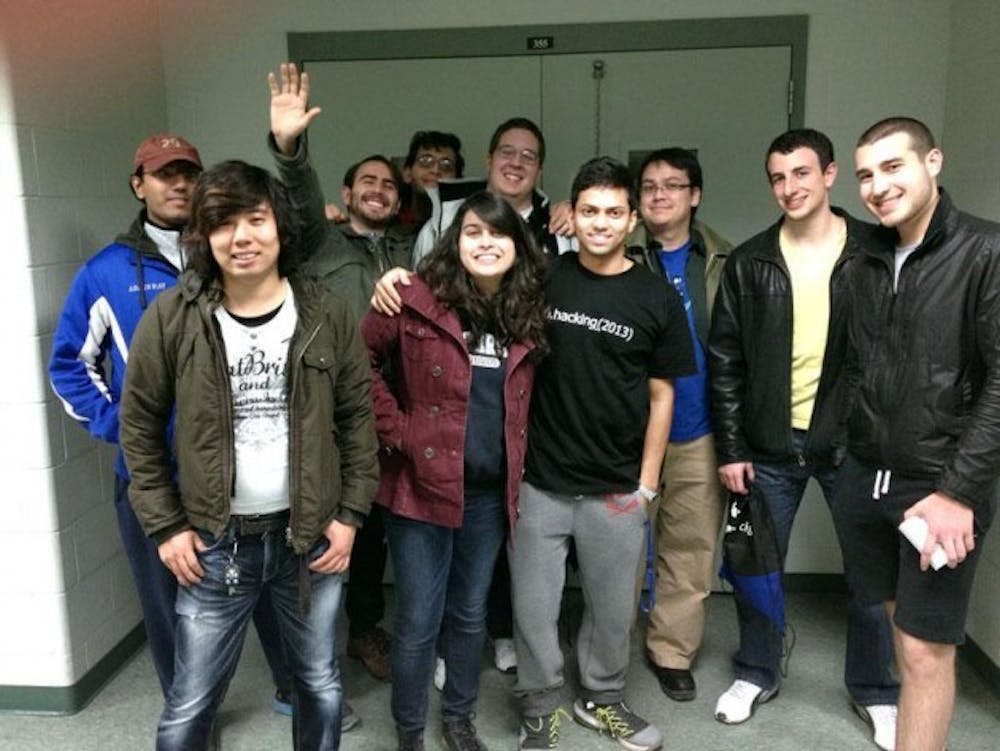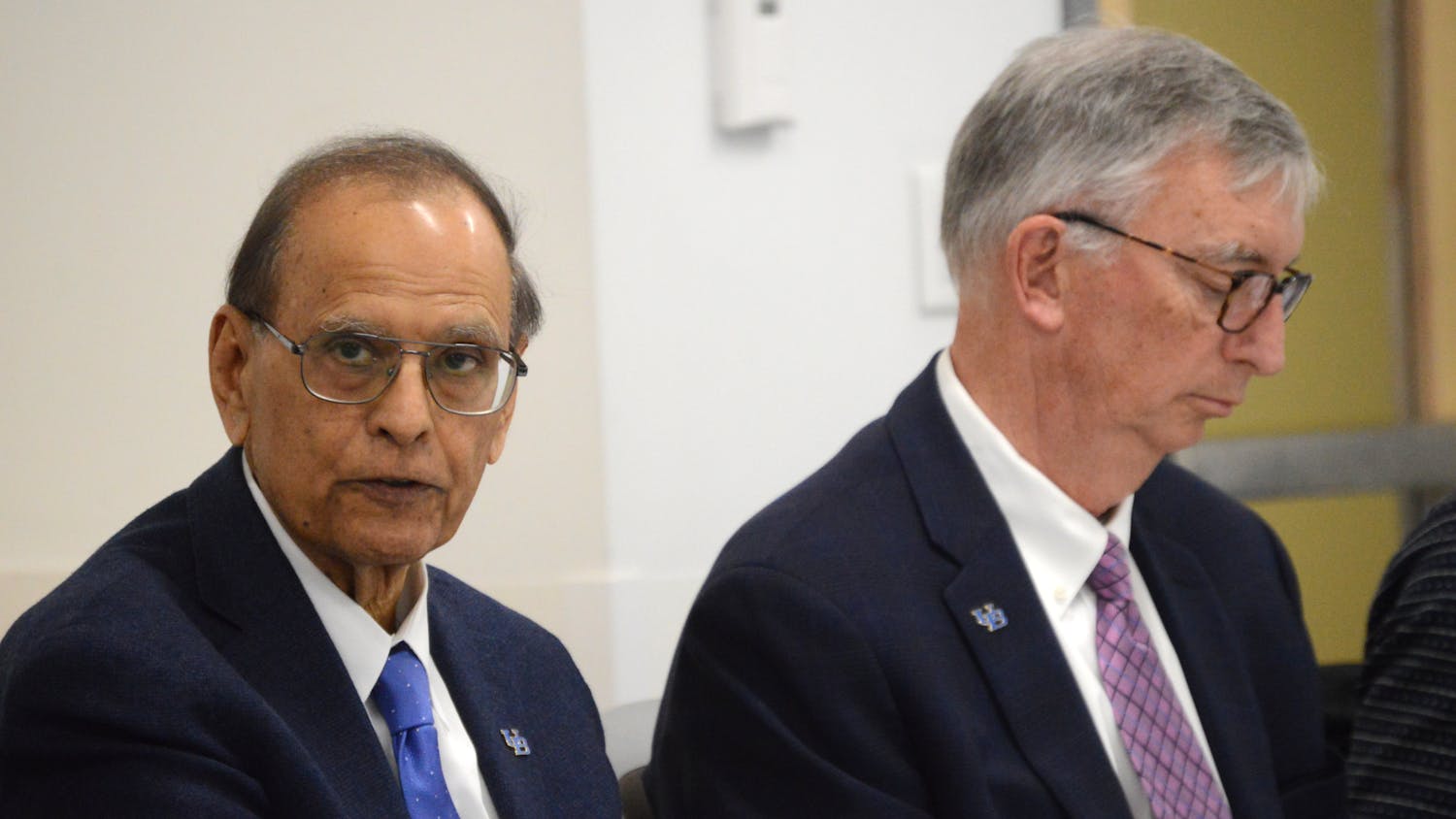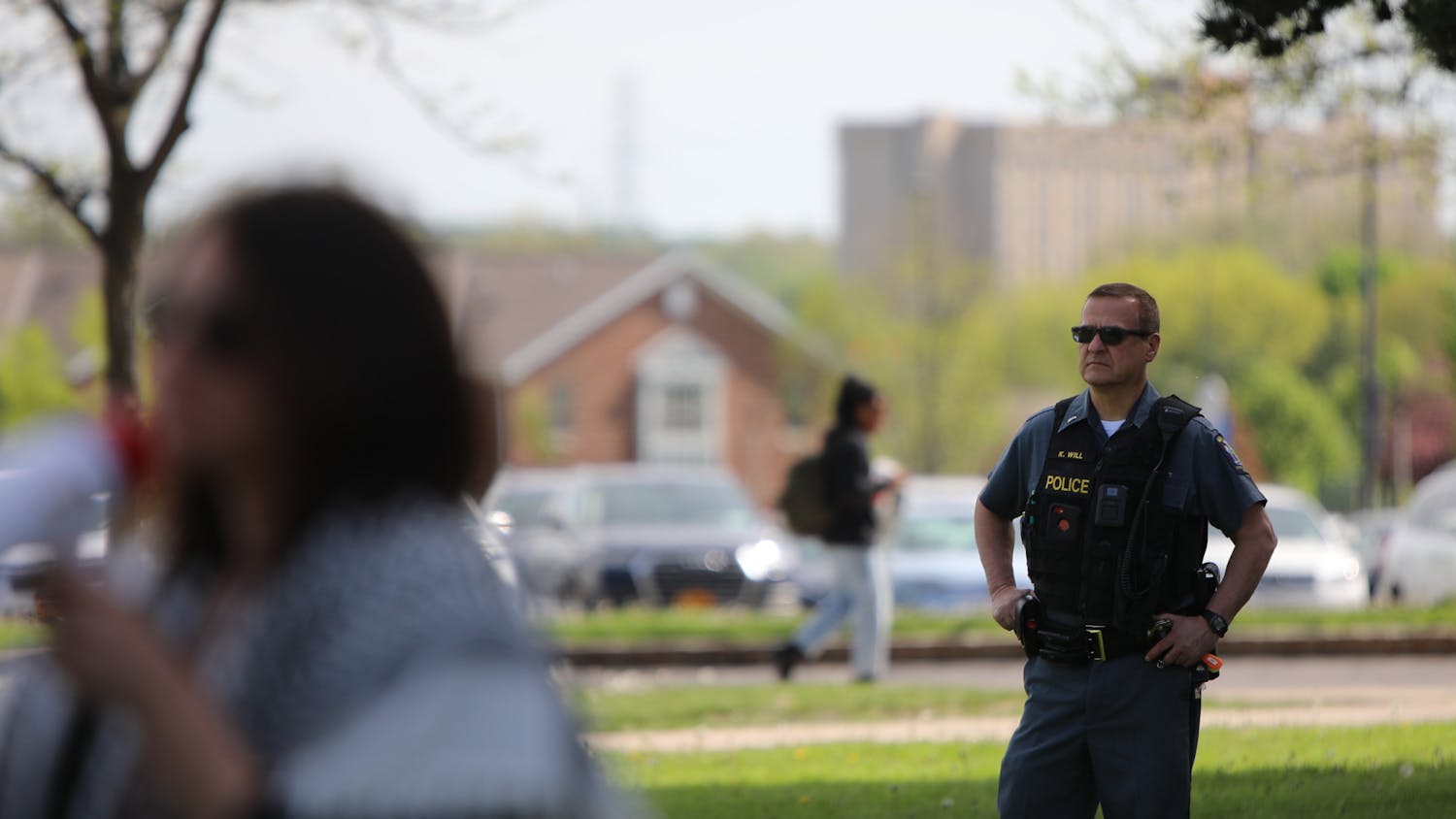Sitting in front of a computer for six to eight hours may be unacceptable for most average college students, but for some UB cyber security competitors, it's not only natural - it's necessary.
The UB Network Defense is a faculty- and student-run class that trains students to fight against cyber attacks. Through hands-on experience, the class prepares participants for competitions in which teams battle each other in cyber security. Students can only take the course, which meets on Thursdays from 6:30 p.m. to 9:30 p.m., if faculty advisers invite them.
"This is a class on defending a network, not attacking others," said Kevin Cleary, a faculty adviser of UB Network Defense. "To call it hacking would be a misnomer."
The class is designed around a guided independent study course, where students approach professors about what they are interested in and want to study. The elements of group work are also brought to the class. Faculty and students bounce ideas off one another and learn from each other.
Cleary, a lecturer in the Computer Science Department and a UB alum, said the class instills knowledge of cyber security in students. He expressed the necessity of teaching methods of defense and attack, which is generally portrayed as "hacking."
Every year, the advisers alter course to test different teaching and learning methods, but "the goal for the students remains the same: prepare for and compete in a network defense competition," Crawford said.
Students learn in less than one year what other schools do in three to four years, Murray said. The undergraduate students learn what is mostly graduate coursework.
Murray said this provides a "unique learning experience," one unlike what UB classes offer.
He said the three goals of the class are to learn, have fun and be competitive.
Although the class is through recruitment, many of its students did not have cyber security knowledge upon taking the course; they learned during the class.
Cleary said basic computer knowledge is important, but it is more about students' dedication and interest.
"If you had a group of all 'A+' [computer science and engineering] students, you would not succeed; if you have a group of all 'A+' [management information systems] masters, you would not succeed."
Rohan Shah, a junior computer science major, is a UB Network Defense captain. During competitions, he guides the team to create the strongest and most secure network.
These cyber security competitions are not what many people know as hackathons, he said. During hackathons, competitors create their own software, but in the competitions that UB Network Defense students partake in, participants hack into real systems.
Shah, who has been involved in many cyber security competitions and hackathons, describes them as "really intense," but fun at the same time.
"[It's a] cat-and-mouse type of game," said David Murray, a management science and systems professor and the coordinator of the class.
During the competitions, students are typically given a scenario in which they are the cyber security team of a business. From there, they must defend the network from penetration testers - those who try to hack into the system.
Another captain, Brandon Sackler, a senior dual finance and economics major, described the competitions as "caffeine and high intensity thinking."
Cleary said the competitions are similar to what happens in the real world, and students are actually defending themselves from industry professionals who have been doing this for years.
"[Students] prepare to survive the competitions [and] prepare to survive the real world," he said.
In the recent competition at Alfred State, UB's two teams won first and fourth place.
Chris Crawford, a UB alum, co-teaches the class with Cleary and Murray. He currently works in Washington, D.C. in a similar field and conducts his part through webcam.
Crawford and Murray tried to create a similar course in 2008. But the plan ultimately failed, with Murray calling it a "disaster." Crawford was embarrassed at his team's performance at the only event he competed in. He said the team was completely hacked in one hour.
After the incident, the class was put on hiatus until 2011, when Crawford reached out to Murray about giving UB Network Defense another chance.
"I realized that nothing at UB really prepared me for what I was doing as a professional more than the experience I had at the [cyber-security competitions]," Crawford said.
Murray said the course is now "light-years" better than when it started. He credits the success to the faculty and students' passion for the topic.
UB Network Defense is currently working to bring an internal competition to campus this semester. Murray said he hopes it will strengthen the group's presence at UB and attract more students to the class.
email: news@ubspectrum.com





